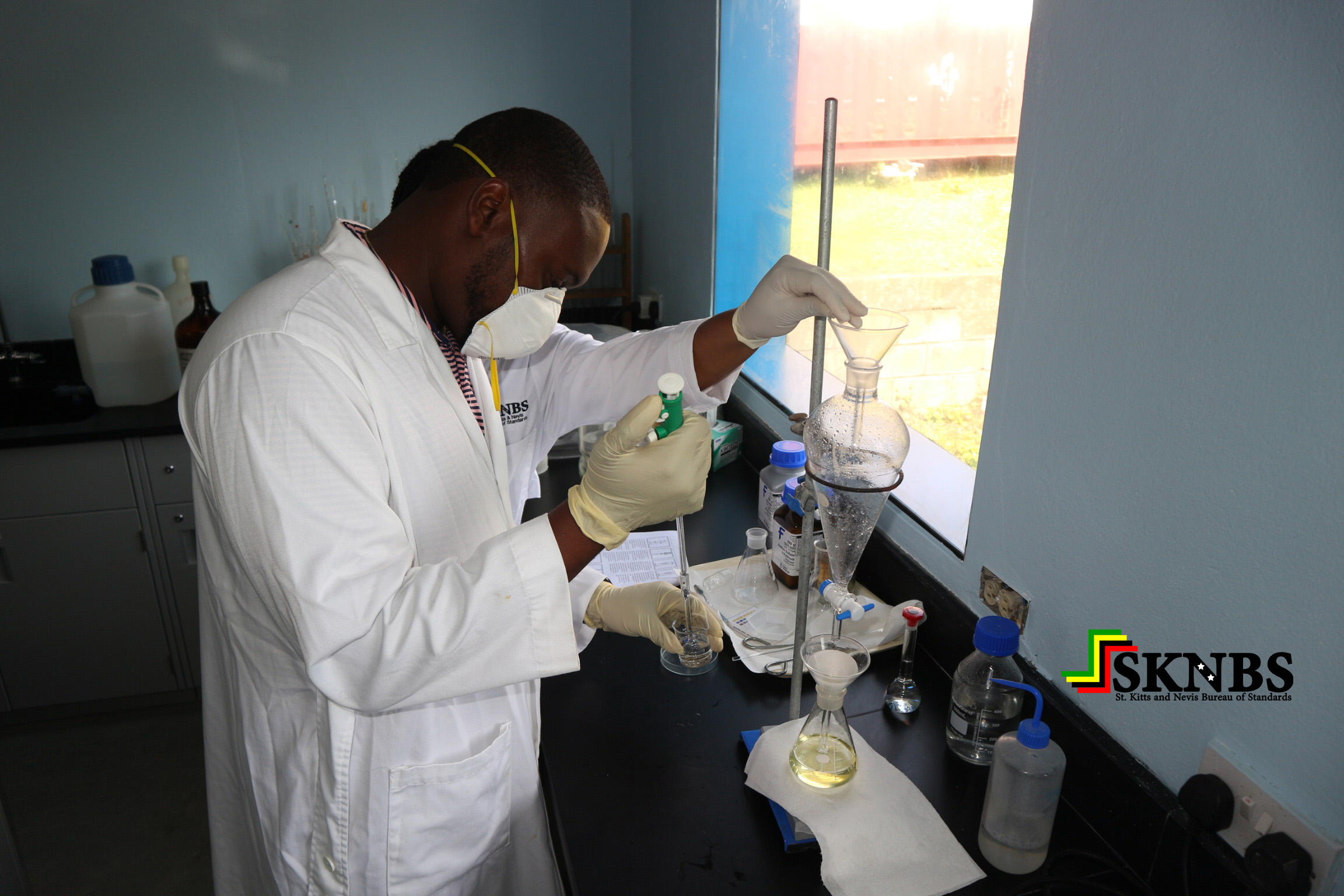Bureau of Standards
The St. Kitts and Nevis Bureau of Standards (SKNBS) was officially established on the 8th day of March 1999 under the National Bureau of Standards Act No. 7 of 1999 now the Bureau of Standards and Quality Act. 2021.
The SKNBS has the major responsibility of protecting the environment, health and safety of consumers. Its activities also focus on preparing, promoting and generally adopting standards on a national, regional or international basis relating to structures, commodities, materials, articles and other things offered to the public commercially, hence promoting standardization, quality assurance and simplification in industry and commerce.
As part of the transformation process undertaken by the Government of St. Kitts and Nevis in 2005, after the closure of the nation's sugar industry, the role of the SKNBS has expanded and forms a critical component in the advancement of the economy of St. Kitts and Nevis, specifically vis-à-vis the facilitation of international trade.
With the establishment of the CARICOM Single Market and Economy (CSME), the SKNBS activities also include increased participation at the regional level where it participates in the harmonization of standards, measurements and conformity assessment regimes for regional integration.
The SKNBS became a correspondent member of ISO in 2016.

For more information visit our official website at www.sknbs.org
Services Offered
The St. Kitts and Nevis Bureau of Standards (SKNBS) is actively engaged in providing legal metrology services in the areas of mass and volume measurements. The International Organization of Legal Metrology (OIML) defines legal metrology as the practice and the process of applying regulatory structure and enforcement to metrology.
The scope of Legal Metrology services in St. Kitts and Nevis includes:
Mass Metrology – Calibration and verification of Non-automatic weighing instruments (e.g. scales at airports, supermarkets, healthcare facilities etc.)
Volume Metrology – Calibration and verification of gasoline volume meters (e.g. fuel stations pumps etc.)
What is a Calibration?
The International Vocabulary of Metrology (VIM 2.39) defines the term Calibration as an “operation that, under specified conditions, in a first step, establishes a relation between the quantity values with measurement uncertainties provided by measurement standards and corresponding indications with associated measurement uncertainties and, in a second step, uses this information to establish a relation for obtaining a measurement result from an indication.
What is a Verification?
The International Vocabulary of Metrology (VIM 2.44) defines a Verification as provision of objective evidence that a given item fulfils specified requirements, for example, confirmation that a given reference material as claimed is homogeneous for the quantity value and measurement procedure concerned, down to a measurement portion having a mass of 10 mg and confirmation that performance properties or legal requirements of a measuring system are achieved.
Provides a full complement of microbiological services to monitor restaurants and food processing outlets according to the Food Compliance Programme. Perform tests and analyze raw and finished products for: total bacteria count, coliform, fecal coliform, E. coli, Staphylococcus aureus, Listeria, yeast and mold.
Provides a full analysis of elements in food and water such as lead, chloride, sulphates and nitrates. Also provide analysis of soil nutrients and constituents such as nitrogen, calcium, phosphorus, potassium and magnesium.
Provide accurate measurements of toxic gases such as sulfur dioxide (SO2), nitrogen dioxide (NO2), hydrogen sulfide (H2S), volatile organic compounds (VOC) and much more.
Provision of pest identification, pest management and extension services to farmers, backyard gardeners, and other stakeholders.
Maintain a rubidium clock that is automatically disciplined to agree with the Inter-American Metrology System (SIM) time scale and Coordinated Universal Time (UTC), by providing real time support to operational timing and calibration systems in the SIM region.


